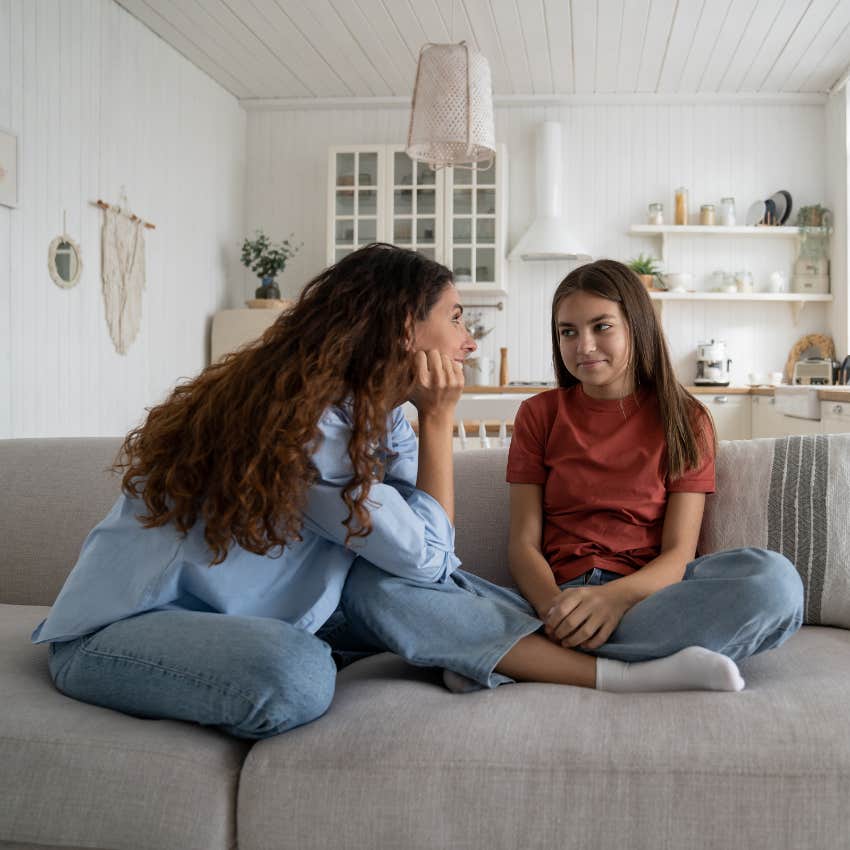Parents Who Raise Socially Confident Kids Do These 4 Things When Their Child Feels Left Out
Instead of panicking or swooping in, these parents use calm habits to help their child bounce back.
 Ivan Lom | Unsplash
Ivan Lom | Unsplash At some time or another, many parents realize and begin to worry that their child has no friends. We suddenly notice that they seem to be home a lot, their phone isn't ringing, or the kids we used to see at our home aren't coming over anymore.
Maybe your child has never really had any friends, and as they head into adolescence, you are worried that they never will. How can parents help their children through this heartbreaking experience? These simple parenting habits turn tough moments into powerful lessons in resilience and real-world social skills.
Parents who raise socially confident kids do these 4 things when their child feels left out:
1. Frirst, d o not panic
I watch so many parents go into pure freak-out mode, and this only makes the situation worse for your children. You probably don't know the whole story and panicking isn't going to help you figure it out. So parents, take a lesson from your own book and take a time out.
Research shows that parents who model self-regulation are more effective in reducing child anxiety symptoms, as children directly learn emotional management by observing how adults handle their own distress. Experts recommend being open, available, and calm when children need to talk, noting that kids often worry about upsetting their parents, making it crucial for adults to remain composed and engaged.
Calm down and get your head clear prior to approaching your child. If you try to talk to them from a place of terror, they will either run or completely shut down. Neither of these actions will help them find friends.
2. Ask your children limited and open-ended questions
 DimaBerlin / Shuterstock
DimaBerlin / Shuterstock
In other words? Do not interrogate them! Here are some examples of what you could ask your children sans the terror tone: "I haven't seen Charlie around lately. What has he been up to?" or "What would you like to do today? Would you rather be with your family or do you want to see if a friend is available?"
The key distinction lies in your tone and intention: autonomy-supportive questioning gives children opportunities to express feelings and opinions comfortably, emphasizing emotional support rather than interrogation. Using open-ended, curious questions rather than interrogative ones helps children develop stronger emotional regulation and social-emotional skills, researchers have concluded.
If your child tells you that they have no friends, it is crucial that you don't start criticizing or blaming them. Instead, go back to the open-ended questions: "Why do you think that is?", "What do you want to do about that?", "How can I support you or help you in this situation?" and/or "Would you like to discuss this with me or anyone else?"
3. Listen carefully to what your child tells you regarding their feelings
Don't assume that they are miserable. It's possible that they ended the relationship for some reason and that they are comfortable waiting to meet new friends. If your child is sad about the situation, then acknowledge his feelings and do not try to fix it for him.
Emotional validation means acknowledging how your child feels in the moment without trying to fix, correct, or teach a lesson. Studies have found that children who receive emotion-validation feedback demonstrate greater persistence when facing challenges by helping de-escalate emotionally charged situations and allowing children to experience a reduction in the intensity of their emotions.
Say, "This is really hard for you, and your feelings are hurt. I don't blame you for feeling that way. My feelings would be hurt in that situation as well." Don't say things like, "But she was a bad friend anyway," or "You can do better." Allow your child to express their feelings and be available to them for guidance if they ask.
4. Finally, don't play friend matchmaker for any child older than 4th or 5th grade
 Oleg Elkov / Shutterstock
Oleg Elkov / Shutterstock
Children typically will learn to make friends on their own and at a pace that makes sense to them. Make sure they have plenty of boring downtime at home to help motivate them to seek friends. You can also help sign them up for some extracurricular activities where they may meet a friend or two.
Research shows that psychological control can be particularly detrimental during adolescence when teens are trying to develop independence while maintaining family connections. Instead of arranging playdates for older children, parents can better support social development by providing opportunities for independent socializing through extracurricular activities and maintaining open, non-judgmental conversations about friendship challenges when they arise.
Not all children need or want a large group of friends, and some may choose not to have any intimate close friends until they are older. If your child seems to be trying to make friends but isn't successful, then talk to teachers and coaches to see if you can get some insight into why that might be. Don't scold your child, but instead have an open discussion about making and keeping friends.
Watching your child struggle with their relationships is challenging. Yet trying to fix it for them is doomed to failure. Think back on your own childhood and how you learned to establish and maintain friendships. Most likely, it was based on trial and error, and each failed friendship led to positive changes for you and your next friend. If you still believe that there is something wrong with your child due to their inability to foster friendships, by all mean,s seek the aid of a professional.
Lisa Kaplin is a psychologist, certified professional life and executive coach, and a highly experienced corporate speaker. She helps people overcome stress and overwhelm to find joy in their personal lives and success and meaning in their professional lives.

